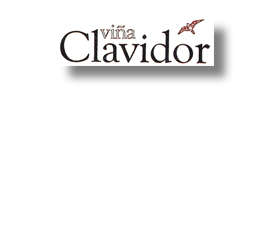 |
Viña CLAVIDOR
La Seca is located in the heart of Rueda, the central region of Castilla-León. This is the home
of Bodegas Vidal Soblechero also known as Viña Clavidor. A few years ago the family decided
to give a new dimension to their huge experience in wine growing by deciding to bottle their
own wine. A small winery was formed, searching for a different way of working to that of their
neighbors who were mainly driven by high volume wine production. The belief of this decision
was that quality should come first. The second most important base for the wines from Clavidor
was the high amount of old vines from their own vineyards. The vines had been established by
Claudio Vidal Obregón, who is still responsible for the vineyards for the last forty years.
It’s the family’s aim to bottle high quality wines which reflect both the character of the
region Rueda and the tradition of the grape varieties Verdejo and Tinta Fina. Today, the
winery is run by Claudio Vidal’s children, Alicia and Vidal.
Alicia Vidal, is a dynamic and determined manager of the winery. The merchandising is up to
her and the strategic decision-making as well. Her brother Vidal Vidal is responsible for
the winemaking. Although he is firmly rooted in Ruedas’ traditional wine making, Vidal
continues to experiment such as fermenting in oak barrels among other things. This practice
is rarely used in Rueda but proves that more can be expected from Rueda than just classic
clean white wine. Diego Pérez is responsible for all other things to be done in a winery.
He is the cellar master and is a faithful soul of Bodegas Vidal Soblechero. There is a fifth
worker in the winery, a sort of soldier who oversees the vineyards and protects it from unwanted
visitors; a hawk. The hawk keeps an eye on the vineyards and chases away birds and other animals.
Hence, the hawk on the label of each bottle of Viña Clavidor.
All in all, there are 42 hectares planted with vines, all of which are owned by the Vidal family.
This of course makes it easier to control growing and harvesting, yields, and all other activities
in the vineyards. It is estimated that 400,000 kilogram of grapes could be harvested if desired
by the Vidal’s vineyards but doing so would lead directly to the opposite of the family’s philosophy.
The maximum yield is about 5,000 kilogram or 3,500 liters per hectare for the white wines and
about 4,000 kilogram or 2,800 liters per hectare for the red wines.
The vineyards situated mostly in the area of the village of La Seca. Some are between La Seca
and Tordesillas; a few kilometers to the north. The most important single-vineyards are Pagos
Varrastrojuelos, Pago Valdechimoza, and La Matea, each within La Seca. The oldest Verdejo vines
of up to seventy years old can be found there. Nearly all of the vines are trained in the
classical castillian bush-style. In the oldest vineyards there is a plant density of about
thousand vines per hectare. The majority of the vines are planted 1,5x3,0 meters apart which
results in about 2,500 vines per hectare. The yield is restricted to three kilogram per plant.
Bush style training makes machine-work much more complicated than the modern styles of trellising.
The use of chemicals is also never used. Furthermore, with the help of the altitude at about 700
meters above the sea level, and to the continental climate, vine diseases at Viña Clavidor are rare.
Harvesting is done by hand during the night. This is a practice hardly found in other wineries of
Castilla-León. Harvesting starts at four o‘clock in the morning when temperatures are at their
lowest and because of the short distances between the vineyards and the winery, the grapes can
be processed at a low temperature shortly after harvesting. The idea is to also maintains the
level of acidity since acids are higher in the early morning than late in the afternoon.
About 27 of the 42 hectares are planted with Verdejo, the most important grape variety of Rueda.
Ten hectares are planted with Tinta Fina, and the remainder with Viura.
Clavidor Verdejo
Clavidor Tinta Fina Roble
|
|





